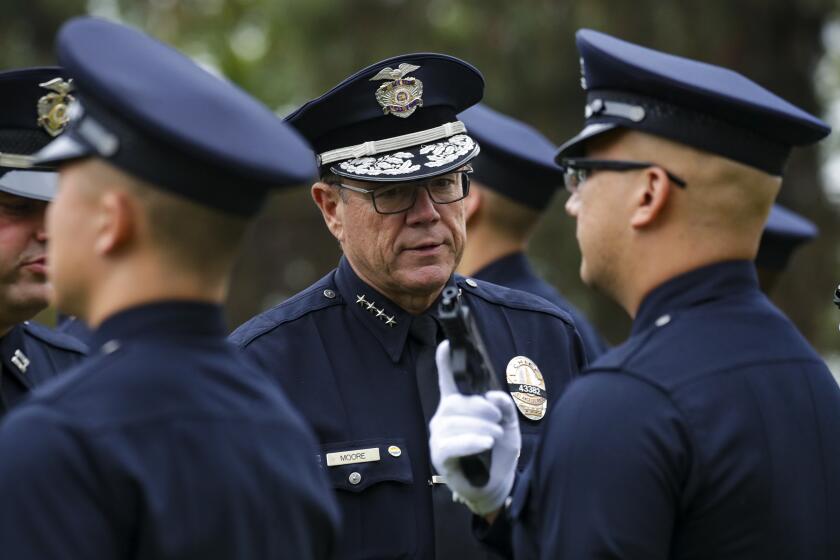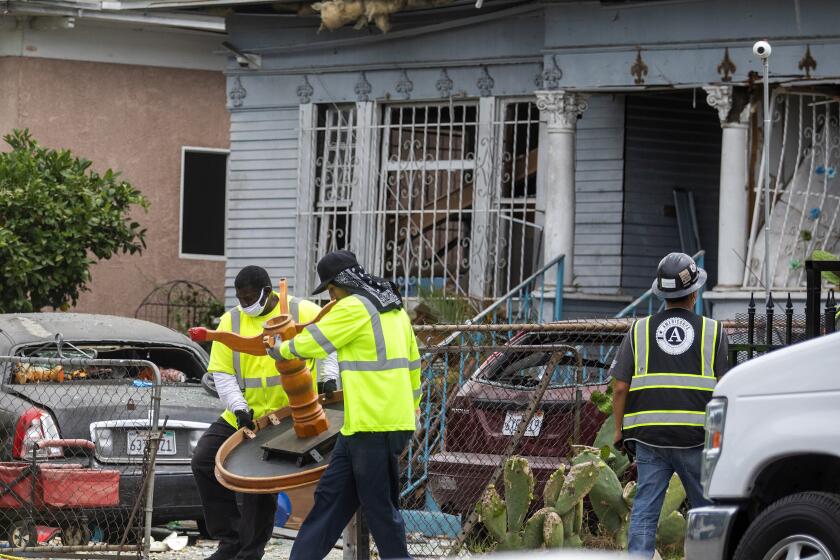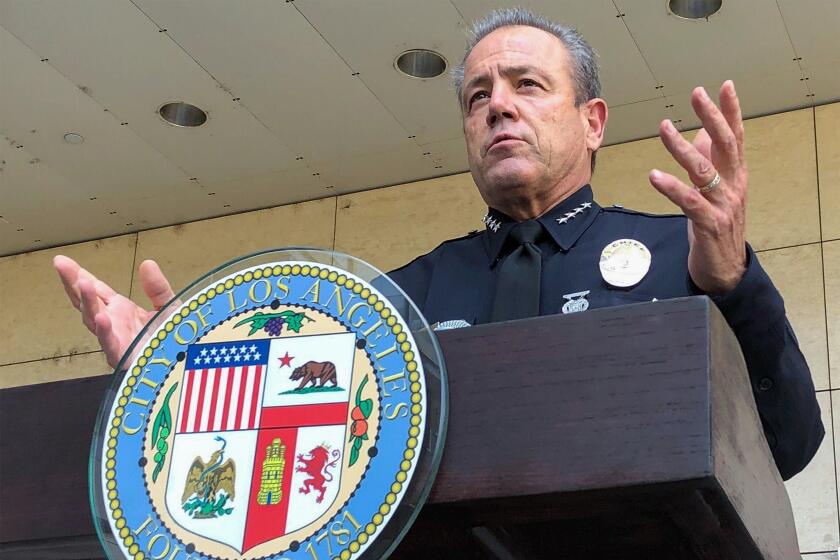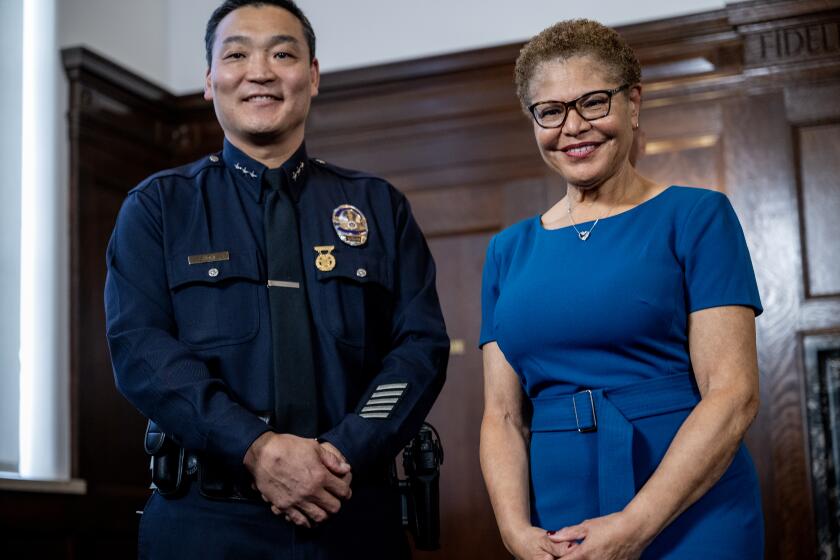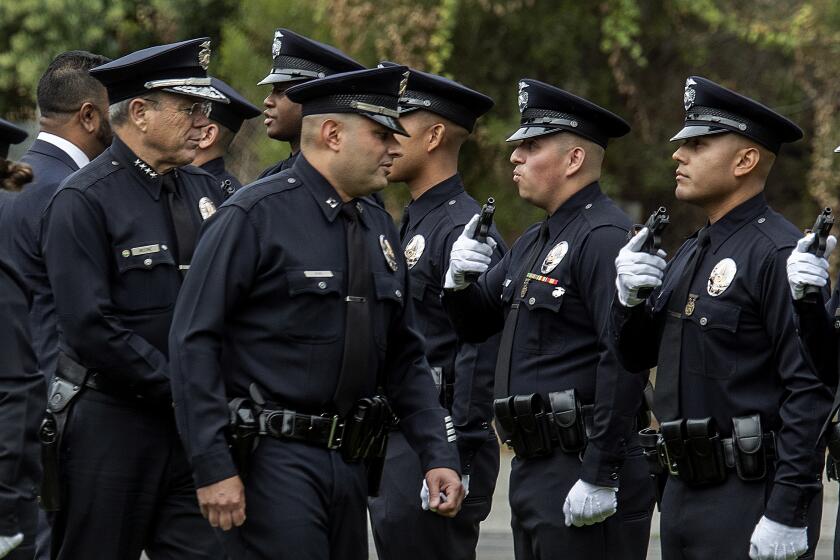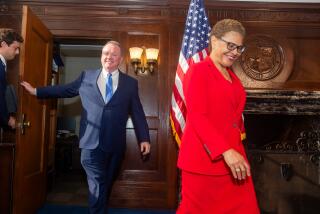Editorial: Bass has been quietly steering needed change in LAPD leadership
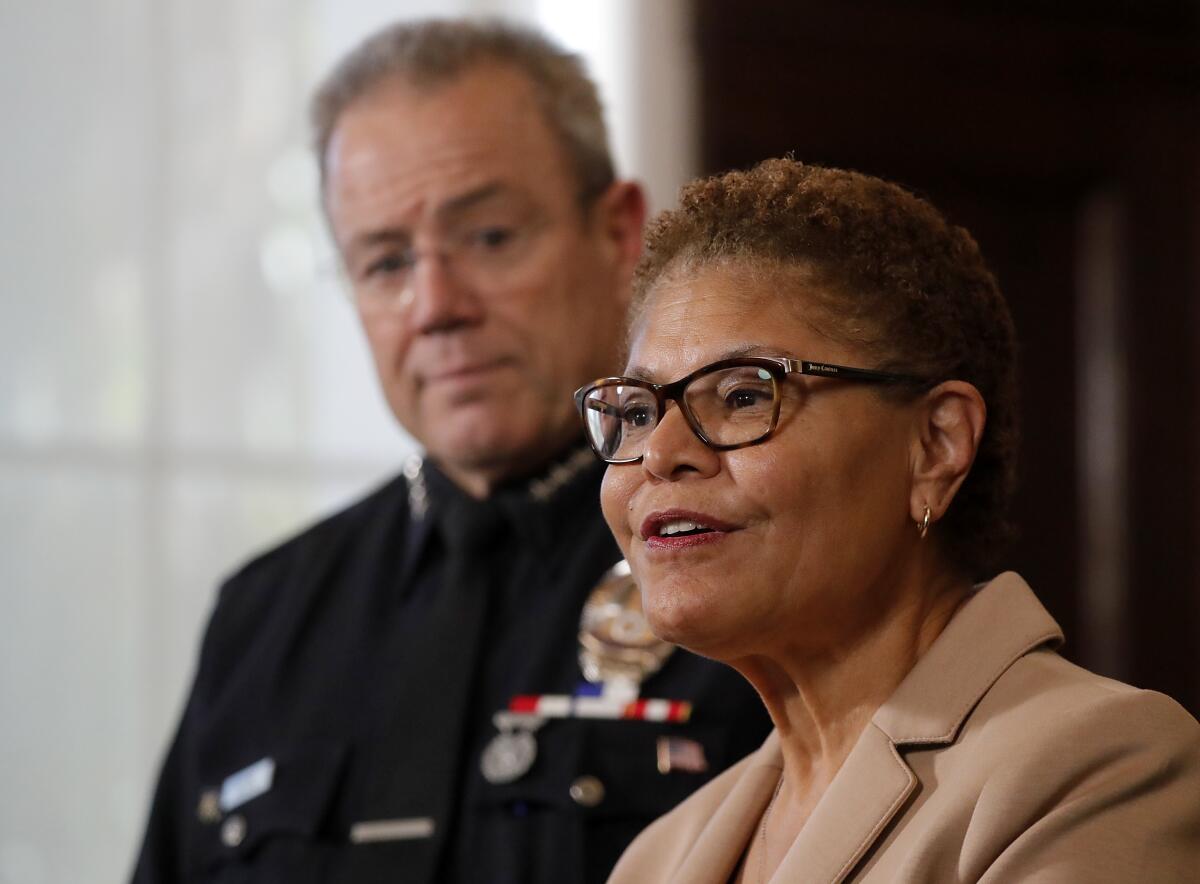
Just over a year ago, it appeared as if new Mayor Karen Bass had blown a rare opportunity to remake the Los Angeles Police Department.
A Police Commission stocked with her predecessor’s appointees fast-tracked the reappointment of Chief Michel Moore to a second five-year term. Bass issued a statement saying she was on board with the decision, but it was not published until after the commission had acted. Moore said he wouldn’t stay for the full term but gave the impression that he would leave when he was ready, and not before. The mayor, absorbed in dealing with L.A.’s homelessness crisis, seemed to be a bystander in her city’s police matters.
The LAPD chief said Friday afternoon that he will step down next month. This is the right move, and gives the mayor an opportunity to reshape public safety in Los Angeles
Hindsight shows a markedly different picture. Over the last few months and through a series of interviews with insiders, police observers and the mayor herself it has become clear that Bass has been steering the LAPD transition all along. Moore has been gently but firmly shown the door just a few months into his second term (his reappointment came in January 2023; the new term began in June).
His trusted assistant chief, Dominic Choi, will step in as interim chief when Moore leaves at the end of February but is out of the running for the permanent position. The department’s rank-and-file and command staff, previously cool to Bass because of her work on police reform, has warmed to her after she won them substantial salary increases and began a series of visits to police stations and candid conversations with personnel.
Chief Moore must comply with legal obligations to release records of the 2021 fireworks explosion in South Los Angeles to assess the adequacy of the department’s investigative, management and disciplinary systems.
Meanwhile Bass is preparing to engage a firm or individual to lead a searing evaluation of the department’s condition, presumably to include its organizational culture, deployment and effectiveness. The goal is to submit recommendations to the new chief, who is expected to be named this summer.
Concurrently, with UCLA, the mayor’s office is continuing to assess Angelenos’ perceptions of public safety through surveys and listening sessions, to identify the particular concerns held in the city’s vastly differing neighborhoods. That process will lead to a report with recommendations, not just for the LAPD but for a wider public safety program that includes first responders including paramedics, traffic officers and mental health clinicians.
Chief Michel Moore’s plan not to serve out a full second term is exactly the kind of thing L.A. has a right to hear before any decision on reappointment.
All of this takes place as Bass, together with a Police Commission that includes her appointees, searches for a new chief.
Bass’ recent actions on police matters have now brought her low-profile leadership style into focus. She has a long history of observing and critiquing the LAPD, but as mayor, she told The Times, she wanted time for fact-finding before acting. She respected the reappointment procedure, which on paper is run by the commission and not the mayor. But she found a way to supersede the process.
Mayor Karen Bass needs an incisive assessment of the challenges that await a new chief, not a status-quo LAPD leadership transition.
Choi’s appointment as interim chief disappointed those who are seeking more sweeping change. But Bass did not see an interim leader as the proper change agent. She said she opted to provide the department some stability during the hunt for a new chief.
LAPD officers believe they have not been supported, respected or even understood by their leaders, including Moore. That may be a consequence of the singular era in which Moore has led, marked by the pandemic and civil unrest after the murder of George Floyd. Or it may just be Moore’s leadership style.
Three members of the L.A. City Council voted against the agreement, arguing it is too expensive and will pull money away from critical city services.
There is also a dearth of experience in the department command ranks, due in large part to a wave of retirements of older officers. There is an inadequate bench of officers ready for top leadership positions. The department is beset by factions and philosophical differences. It continues to struggle with race and sex discrimination.
The next chief, whoever it may be, will have to share the direction that Bass sets. What will that direction be? Bass has shown skillful behind-the-scenes leadership. Now she needs to show public leadership by articulating to Angelenos her vision for public safety and the LAPD.
More to Read
A cure for the common opinion
Get thought-provoking perspectives with our weekly newsletter.
You may occasionally receive promotional content from the Los Angeles Times.
